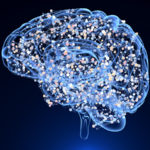In September of 2017, the Caribbean island of Puerto Rico was impacted by one of the most intense hurricanes on record in the Atlantic basin. Measuring as a Category 5 system, the cyclone resulted in more than $90 billion in damage, and over 3,000 lives lost — including the grandfather of U.S. congresswoman Alexandria Ocasio-Cortez, who protested the storm’s devastation.
Even one year after the cyclone ravaged the island, health service responders assisting relief efforts for victims were still exhibiting symptoms of post-traumatic stress disorder (PTSD) and severe anxiety, according to a study published in the journal Traumatology.
In the study, researchers from the University of Illinois at Urbana-Champaign compared the effects of the natural disaster in Puerto Rico from Hurricane Maria with Hurricane Harvey in Texas.
The research team examined 1,101 health service providers between 10 to 12 months after the landfall of both tropical systems. “Providers completed measures of PTSD, anxiety, burnout, secondary traumatic stress, compassion satisfaction, social support, and resilience,” the study’s co-authors stated in the findings.
“Frequencies were calculated to determine percentages of those who scored above the clinical cutoff for mental health symptoms.”
In Puerto Rico, nearly one year after the storm’s impact there, over 49% of health service providers were still capable of diagnosis for PTSD. This is compared to the nearly 20% of responders reported after the natural disaster in Texas.
“Findings confirm high rates of mental health distress among providers during the disaster recovery,” researchers concluded. “Given our findings, it is critical for accessible, evidence-informed interventions be available for providers.”


